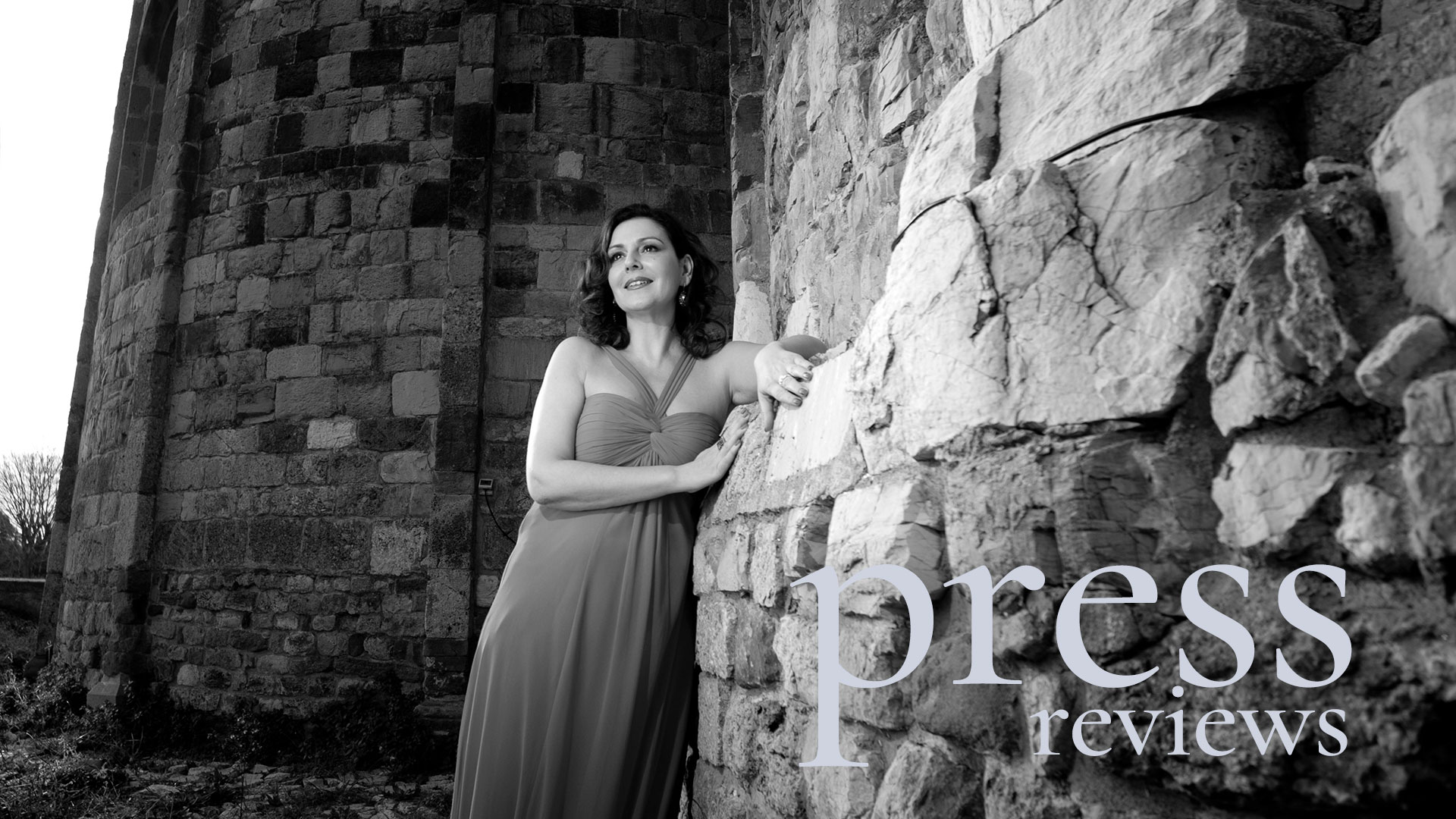Expressive and dazzlingly clear, Voulgaridou is Tosca, a noted singer and Cavaradossi’s love interest. It’s particularly piquant for a Greek to be reprising the role Maria Callas made her own. That’s a lot to live up to and Voulgaridou does not go wanting. Theatrically, too, Voulgaridou convinces as a stubbornly courageous, defiant woman, who turns the tables on her captor and would-be assailant. She delivers Vissi D’arte as if her life truly depends on it.
Lloyd Bradford Syke, Crikey, Independent Media, July 15, 2013
Soprano Alexia Voulgaridou, in the title role, made an engaging and very feminine heroine, her clear soprano providing a sweet contrast to Lee’s more towering voice. The Greek-born soprano’s Vissi d’arte (“I lived for art, I lived for love’’) at the end of Act II was as fine a rendering of this aria as any I have heard.
Tom Pillans, Manly Daily, July 9, 2013
Voulgaridou milks her highly charged role for every ounce of drama it offers, moving from playful flirt to murderous desperation with an assured blend of strength and vulnerability. The rapturous reception accorded her heartbreaking delivery of Tosca’s signature aria, Vissi D’Arte (I Loved For Art), was certainly well-earned.
Cecily Ryan, Daily Telegraph, July 10, 2013
Alexia Voulgaridou’s Tosca captures something of the charm and eagerness of youth. Her top range was pure and she found guttural force in the lower tones, opening out powerfully in Act 3 after a disarmingly small-scale first act.
Vissi d’arte, the soliloquy of Act II that Puccini inserted between torture and lust, was pained more than pristine, warmed by feeling with an undercurrent of anguish.
Peter McCallum, The Sydney Morning Herald, July 8, 2013
As Tosca, soprano Alexia Voulgaridou was magnificent. Sustaining a rich timbre and fluid line, she was firm and strong across her range. […] Voulgaridou was an emotionally convincing Tosca, clearly traumatised by her brutal encounter with Scarpia.
Murray Black, The Australian, July 8, 2013

